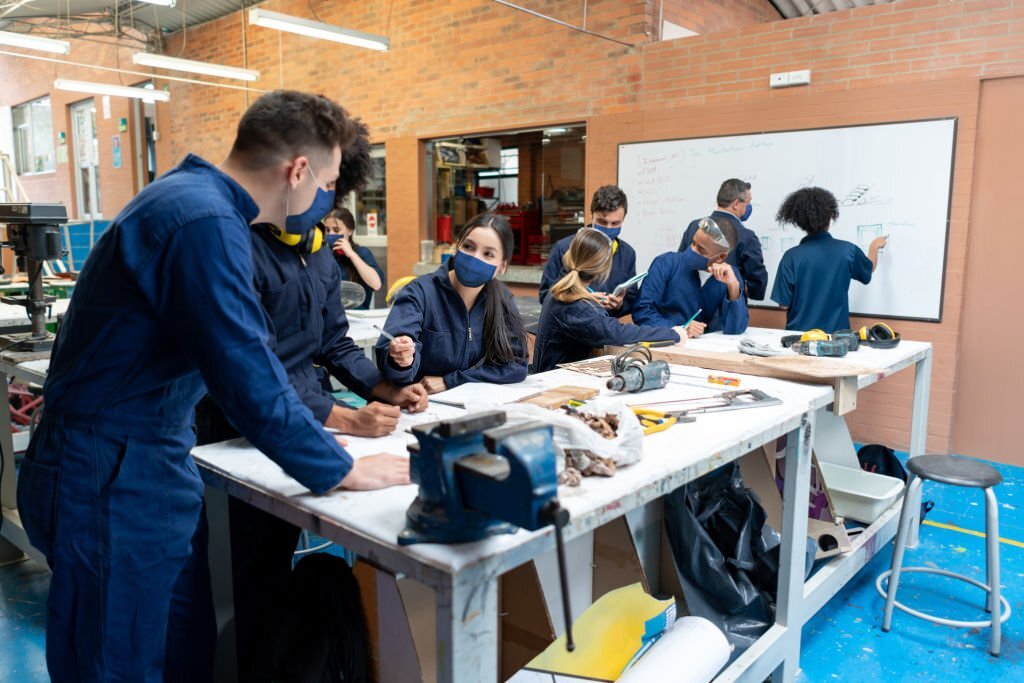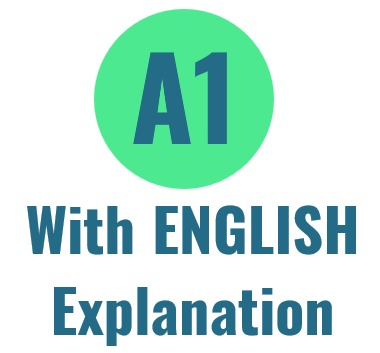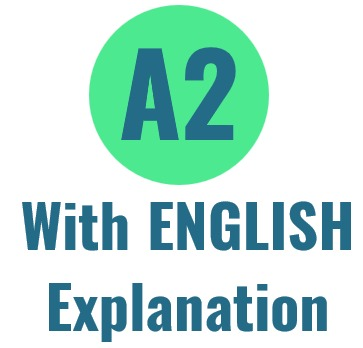There are more than 300 vocational training programs in Germany and can be completed in one of the following two possible ways.
• Dual vocational training usually starts during the month of August or September every year
• Dual vocational training in Germany combines theory and practical work
• Theoretical knowledge is acquired at a school called Berufschule, whereas the theoretical knowledge is put into practice at a company
• Acquiring theoretical knowledge and putting it into practice is done side by side so that some days/weeks are spent at a school, whereas some days/weeks are spent at a company
• The duration of vocational training could be two to three and a half year
• Employment prospects are very high for this type of vocational training as the students not only acquire theoretical knowledge, they also get hands on practical experience
• Depending on the region and company average gross salary during vocational training is around 1000 Euro per month


• School based vocational training differs from dual vocational training in Germany in that the students will spend less time in a company
• Students learn both theory and practice of the selected profession at a vocational school
• School based vocational training in Germany is very common in certain professions like nursing, design and creativity, engineering and business
• The duration of school based vocational training in Germany varies between 1 to 3 years
• School based vocational training can be completed at a public or a private school
• If vocational training is completed at a school, students usually do not get any salary but there are some exceptions. Health related professions including nursing are paid around 1000 Euro per month.
In order to qualify for vocational training in Germany applicants must fulfill certain academic and language requirements. The requirements for each type of vocational training mentioned above are different.

As far as the academic requirements of dual vocational training are concerned, its up to the company which school leaving certificate they require. Every company set the requirements according to their need. A 12 Grade or a Higher Secondary School certificate would be sufficient for almost all the companies. Since the dual vocational training will be conducted in German language, it is important to learn German language to be accepted for the selected training program. B1 level of German language will enhance the chances of getting admission in dual vocational training.
For admission in school based vocational training a school leaving certificate like higher secondary school certificate is mostly required. Some School based vocational Training programs also require applicants to have completed an internship in order to fulfill the admission requirements. School based vocational training is also conducted in German language; therefore, it is important to learn German language to be accepted for the admission in the selected training program. If you are interested in completing a vocational training from Germany, book a consultation hour. We will answer your unanswered questions and would be glad to assist you in your admission process. After the successful completion of vocation training in Germany, it is possible to stay in Germany for a period of up to 1 year. During this time, one may search for a suitable job in the profession one has learned during dual vocational training or a school based vocational training. If one gets a job during the 1-year time, one can apply for the residence permit for qualified employment. Upon completion of vocational training in Germany and then working for 2 years in Germany, one can apply for the Permanent Residence (PR).

 Demos
Demos 
















